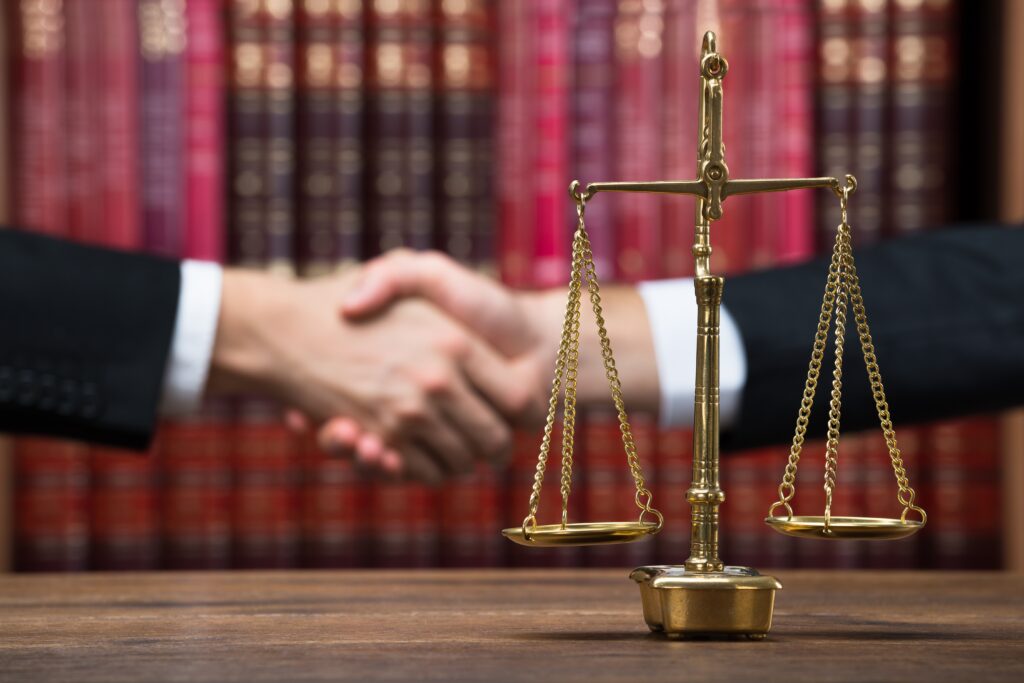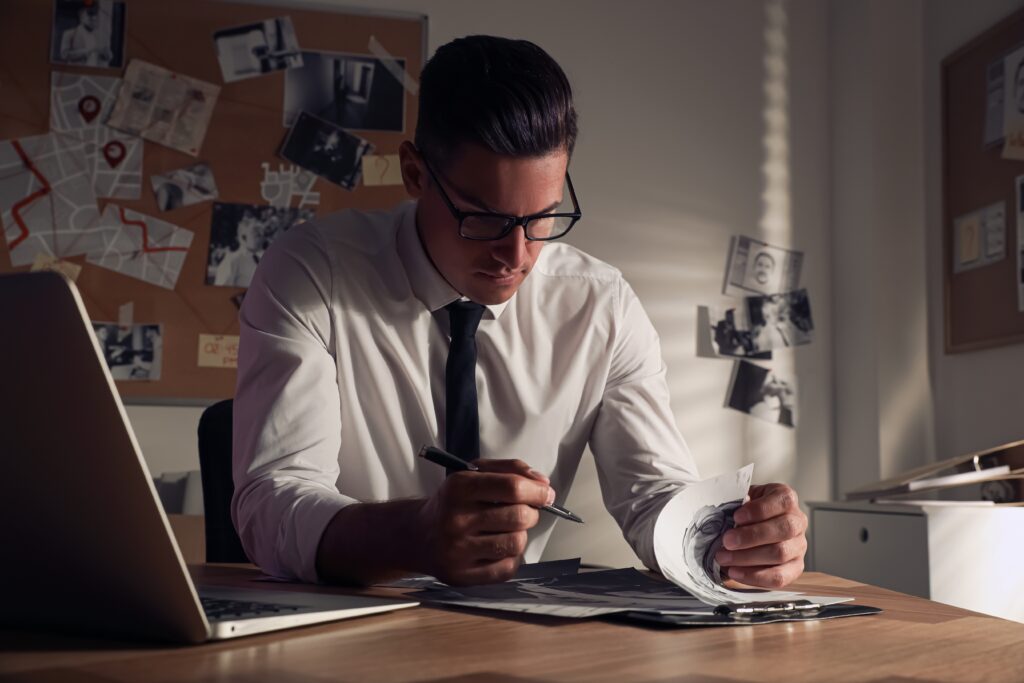Detective and lawyer: an essential collaboration for dispute resolution
The Roles of Private Detectives and Lawyers in Dispute Resolution
When a dispute arises, it’s often necessary to gather evidence to resolve it. This is where private detectives and lawyers come into play. Detectives can assist in collecting information and evidence, while lawyers represent their clients’ interests and argue their cases in court. In this article, we will examine the roles of detectives and lawyers in dispute resolution, how they collaborate, and how to choose a private detective and a lawyer to resolve a dispute.

1- The Roles of Detectives and Lawyers in Dispute Resolution
1.1. Private Detective: Information Collection and Evidence
A private detective is a professional specializing in information collection, particularly in civil cases. They can work for individuals, businesses, or lawyers. Detectives can assist in gathering evidence to prove an offense, obtain testimonies, or conduct research on individuals or companies for specific and predefined purposes with their clients.
1.2. Lawyer: Legal Representation and Advocacy
Lawyers are legal professionals who represent their clients’ interests in court. They can advise their clients on how to resolve disputes, argue their cases in court, negotiate agreements, and represent their clients during legal proceedings.
2- How Do Detectives and Lawyers Collaborate?
2.1. Collaboration between Detectives and Lawyers
Effective communication between detectives and lawyers is essential to ensure collaboration. Detectives must provide accurate and reliable information to lawyers, who can then use it to argue their client’s case in court. Lawyers must also inform detectives of the case details to help them collect information effectively. It’s a mutual exchange, all aimed at defending a client.
2.2. Coordinating Efforts
Coordinating efforts between detectives and lawyers is crucial for dispute resolution. Detectives can help identify the necessary evidence to support their client’s case, while lawyers can use this evidence to build a strong argument. Good coordination also helps avoid unnecessary efforts and optimizes results, both in terms of timing and legality.
3- Three Examples Where Collaboration Between Detectives and Lawyers Is Essential
3.1. Divorce and Child Custody
In divorce cases, detectives can help gather evidence to support child custody claims. They can also assist in identifying hidden assets of an ex-spouse to initiate requests for spousal support adjustments. Lawyers can use all the evidence collected to argue their client’s case in court.
3.2. Legal Cases
In some legal cases, detectives can help monitor suspects to gather additional evidence. Their work should not overlap with the work of police or gendarmerie investigators but rather complement or follow it to avoid compromising official investigations. Lawyers can then use this information to defend their clients in court.
3.3. Commercial Disputes
In commercial disputes, detectives can investigate companies and business partners to identify any evidence that may be used to establish the truth in court. Lawyers can use this information to argue their client’s case in the relevant courts or to negotiate amicable settlements.
4- How to Choose a Private Detective and a Lawyer for Dispute Resolution?
4.1. Choosing a Private Detective
When selecting a private detective, consider their experience and qualifications. Ensure they have a valid license and can provide references and testimonials from satisfied clients. You should also review their rates and fees to avoid financial surprises.

4.2. Choosing a Lawyer
When choosing a lawyer, consider their specialization and experience by analyzing their resolutions of similar disputes. Make sure they have a good reputation and effective communication skills. Additionally, review their rates and fees for comparative analysis.
Conclusion
Collaboration between private detectives and lawyers is essential for dispute resolution. Detectives can help collect information and evidence, while lawyers can represent their clients in court based on this information. Effective communication and coordination between both parties are crucial to ensuring efficient dispute resolution. By working together, both parties can ensure their clients achieve the best possible results. If you’re considering hiring a private detective or a lawyer to resolve a dispute, be sure to take the time to choose the most qualified professionals for your case.